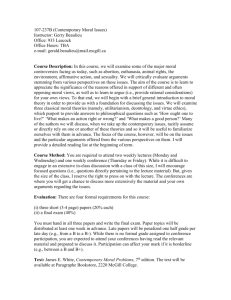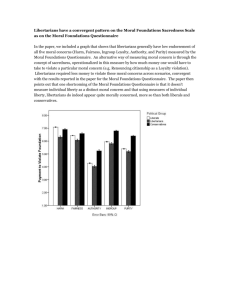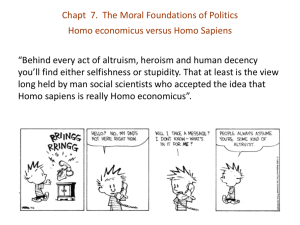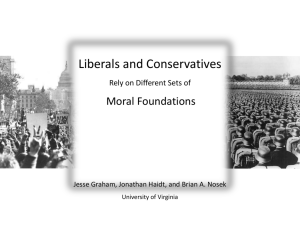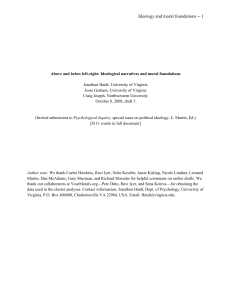The Influence of Smiling on Different Moral Foundations Clint
advertisement
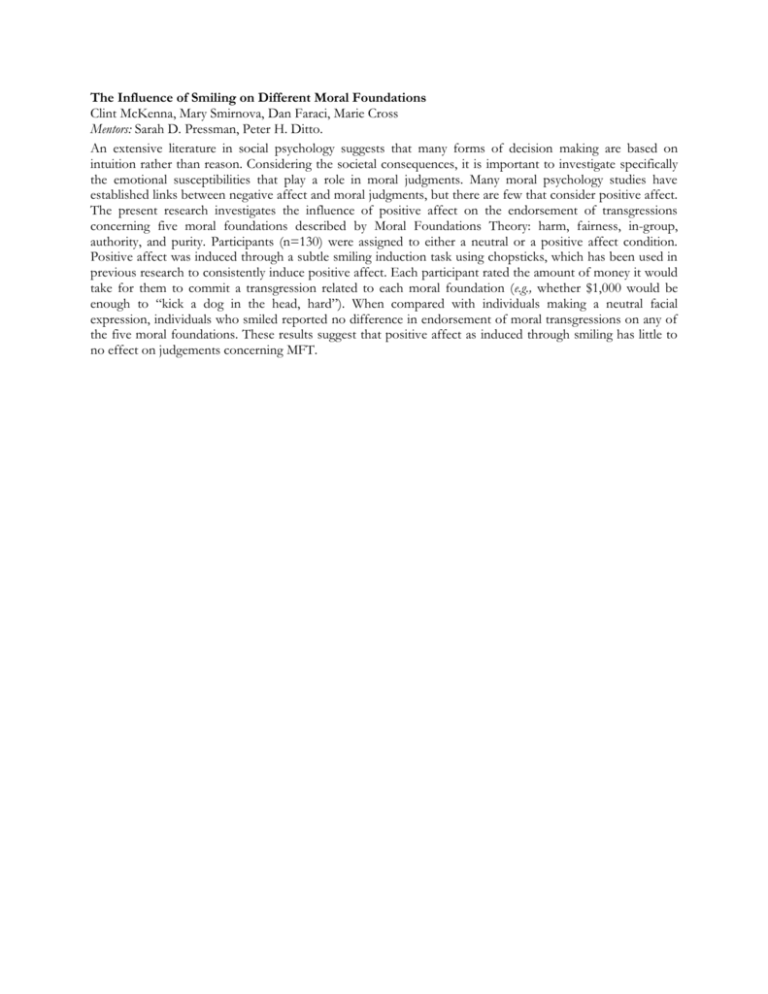
The Influence of Smiling on Different Moral Foundations Clint McKenna, Mary Smirnova, Dan Faraci, Marie Cross Mentors: Sarah D. Pressman, Peter H. Ditto. An extensive literature in social psychology suggests that many forms of decision making are based on intuition rather than reason. Considering the societal consequences, it is important to investigate specifically the emotional susceptibilities that play a role in moral judgments. Many moral psychology studies have established links between negative affect and moral judgments, but there are few that consider positive affect. The present research investigates the influence of positive affect on the endorsement of transgressions concerning five moral foundations described by Moral Foundations Theory: harm, fairness, in-group, authority, and purity. Participants (n=130) were assigned to either a neutral or a positive affect condition. Positive affect was induced through a subtle smiling induction task using chopsticks, which has been used in previous research to consistently induce positive affect. Each participant rated the amount of money it would take for them to commit a transgression related to each moral foundation (e.g., whether $1,000 would be enough to “kick a dog in the head, hard”). When compared with individuals making a neutral facial expression, individuals who smiled reported no difference in endorsement of moral transgressions on any of the five moral foundations. These results suggest that positive affect as induced through smiling has little to no effect on judgements concerning MFT.







